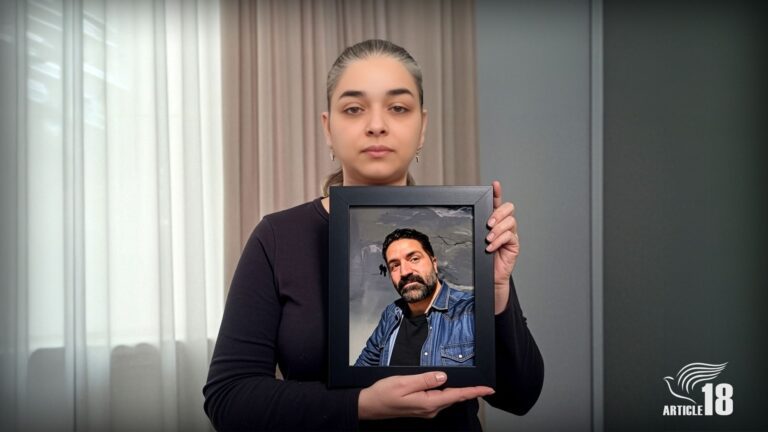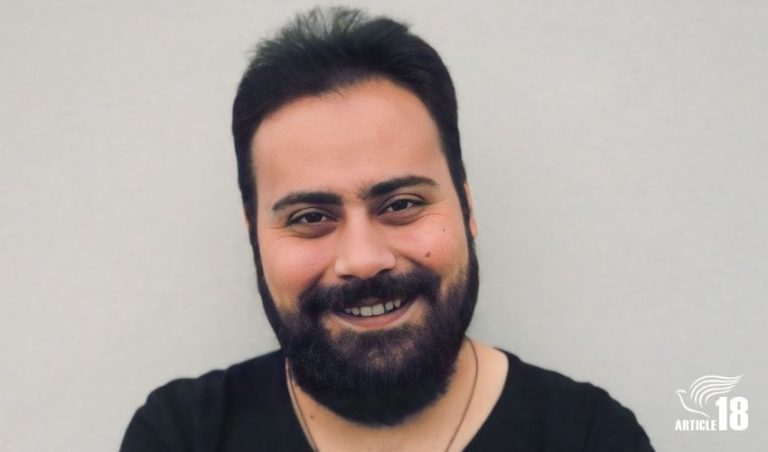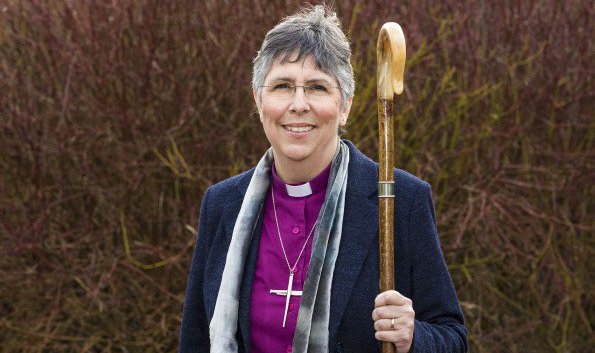
(Illustrative image)
Of all the examples in the leaked Edaalate Ali files pertaining to Christians, one case stands out: that of a dual national by the name of Alexander B, who at nearly 80 years old was sentenced to five years in prison for attending a house-church.
The court documents in the case are replete with examples of how Iran’s judiciary seeks to distinguish between the different branches of Christianity, as evidenced below.
Who is Alexander B.?
An Iranian-Armenian Christian, nearly 80 years of age at the time of the court case in 2022, who was born in Rasht, northern Iran, but emigrated to the US.
His lawyers described him as “a dignified and calm man of faith, who aside from political issues loves Iran as his homeland and birthplace, and respects and adheres to the laws and systems of the Islamic Republic of Iran”.
What was he accused of?
The long list of accusations against Alex included:
- “membership in the community under the name of a home church of ‘Zionist Evangelical Christianity’, with the aim of disrupting the security of the country”;
- “gathering and colluding against the country’s security”;
- “disturbing the public mind and disrupting social order through Christian publications with the aim of attracting Muslims”;
- and “insulting Islamic sacred things”.
What did the prosecutor say?
The main points of Mohammad Nasirpour, head of the 33rd Prosecutor’s Office of Tehran, including quotes from Iran’s two Supreme Leaders, are outlined below:
Supreme Leaders’ warnings
“According to Imam Khomeini’s statements, ‘We have no enmity with Christians, Jews, and other nations, and we do not prevent [their] religious schools in any way, as long as they are for teaching and learning, but if we understand that these schools are different in Iran, they are to us the same as the ‘den of spies’ [US embassy] … and if we understand that in our Tehran, the centres of propaganda of the Church, Zionism, and Baha’ism have been created, which mislead people and distance them from the rules and teachings of Islam, isn’t it our duty to destroy these centres that harm Islam?’
“And according to the words of Imam Khamenei, ‘From the spread of unrestrained and immorality, to the promotion of false mysticism, to the promotion of Baha’ism, to the promotion of the network of house-churches, these are the things that the enemies of Islam are doing today with study, planning and foresight … to weaken religion in the society.’”
Protestants a ‘security threat’
“Armenian and Assyrian Christians in the Catholic and Orthodox religions are aligned with the Islamic Revolution and are even considered an opportunity to advance the goals of the Islamic Revolution. However, Armenian and Assyrian Christians in the Protestant religion, with their evangelistic nature and the mission of Christianising Iran, are considered a security threat for the Islamic Revolution.”
‘Enemy’
“Persian-language, evangelical movements are supported by fundamentalist evangelical Christians and Zionists … [who] consider Shiism their biggest enemy and consider it their religious duty to fight against it.
“Since American Zionist Christians consider the Islamic Republic as their enemy, they do not stop any hostile efforts against Iran, and they use the evangelistic activity in Iran as an action against the security of the Islamic Republic … by destroying and humiliating the dear Islam and promoting Islamophobia and casting doubts on the beliefs of Muslims, especially young people who are suffering for example from financial or emotional problems.”
‘Command centre’ in US
“The main command and planning centre of this movement is located in the United States and is accompanied by the intellectual and financial support of the Zionist regime and England.”
‘Deviant sects’
“The formation of a house-church is contrary to the religious ceremonies of authentic Christians. These [house-]churches … are not approved by authentic Christians and are deviant sects.
“These deviant branches of Christianity … are trying to expand by using all the tools, including the formation of house-churches, satellite networks, radio, publishing books and virtual space, and financial attraction in the form of secret and underground pyramid networks. Their propaganda umbrella is aimed at creating deviation in the minds of Muslims in order to tend to these sects.
“Taking into account that the purpose of forming house-churches and evangelistic activities by these sects in the Islamic Republic of Iran is to attract Muslims to Zionist Christianity, and it is completely dependent on the international Zionist intelligence services, with people converting from Islam there will be no trace of the Islamic Republic system. Therefore, the act of forming a house-church, and evangelistic activity, is considered to be with the aim of disrupting the country’s security.
‘No need for secret churches’
“With more than 250 active, semi-active and historical churches in the country for the religious activity of Christians, there is no reason for secret and hidden activity and the formation of a house-church … And no license has been issued for the activity of these churches and associations.”
How did his lawyers respond?
Alex’s lawyers, Alireza Thaqfi and Mohammed Kialashki, were highly critical of the investigating officers in their long submission to the appeal court, including the following observations:
House-churches ‘religious’, not anti-security
“What is referred to as ‘membership’ [of an anti-security organisation] is only attendance at prayer meetings and gatherings of groups of friends … A ‘house-church’, as its name suggests, is a place to perform activities similar to what is done in a church, for the purpose of prayer and religious practices.”
Misuse of ‘Zionist’ terminology
“Giving the adjective ‘Zionist’ … is only for the purpose of condensing the case and to magnify and make his actions appear important, such that through this method an innocent person is accused and punished.”
Disproportionate punishment
“He was sentenced to five years in prison, which considering the age of the client … and his lack of any criminal record, and lack of knowledge about the prohibition of participation in friendly meetings and performing religious ceremonies [in a house-church] and the absence of specific malice, is very heavy.”
Prisoner exchange the ‘ultimate goal’
“The repeated questions and interrogations [make] it quite clear that the motive of the prosecutor was only to add to the volumes of the case in order to make the charge appear big and the accused so valuable that he can exchange them with the prisoners wanted by the government of the Islamic Republic of Iran for exchange in America.”
‘So many illegalities’
“There are so many illegalities in the case that it is not possible to describe all of them in this text, and I invite the honourable judges to examine the questions and actions of the honourable interrogator carefully, recognising that the client is only an accused and not a criminal, and asking whether the law and criminal procedure – which are mandatory laws – have been followed in the investigation process or not.”
‘Pure lie’
“There are obvious interferences and false statements made against the client, and use of words such as ‘Evangelical visiting [pastor]’, attributing statements to the client which he has not uttered, adding the names of some countries and provinces as the client’s travel destinations to which he has not travelled…
“The job of the client is mentioned as the ‘pastor of a house-church of Zionist Christianity’, while the job of the client is a driver … and the interrogator has no right to attribute a job to the client based on his imagination, which has nothing to do with the client and is a pure lie.”
Regarding biblical prophecy of ‘establishing throne’ in Iran
“The investigator of the case … [claims] the above contents are in the client’s handwriting, while the aforementioned contents are printed texts from the Bible.”
‘Goal to convict’
“The investigator of the case, who is neither an expert in Christianity nor has complete information about it, is trying to define the word ‘evangelism’, a word whose meaning can be understood with a simple reference to the dictionary, but he has made up his own definition – to fulfil his goal of convicting the client.”
Regarding ‘acting against national security’
“The most important part of the charge is ‘gathering to disturb the security of the country’. What is the security of the country? What are the elements of a country’s security? What were the client’s limited actions related to the country’s security? How was this big accusation against the client confirmed?
“From a legal point of view, there is no connection between the behaviour of the client and the disruption of the order and security of our beloved country and the Islamic system, and no reason has been presented in the case, except that the interrogator of the case, by collecting false terms … intends to incite such an accusation against the client in the reader’s mind.
“Action against national security means actions that directly and knowingly target national security and intend to weaken it.
“In this regard, firstly the client had no intention of such an action. Secondly, his action in participating in home meetings was just … to pray according to his religion. Therefore, the gathering of several people in one house does not mean an illegal organisation.”
Regarding ‘aim of attracting Muslims’
“The irregular gatherings attended by the client were with his fellow believers and there were no Muslims … So far in this case there is not even a single example that a Muslim person was attracted to Christianity.”
Regarding ‘insulting Islamic sacred things’
“It is not clear how this accusation was attributed to the client, while there is no statement or evidence of insulting the client against Islam, but the client, as a Christian believer, declared his [respect of] Islam in his statements in the case.”
Regarding ‘acquiring illegal property’
“I am very sorry to have to say that there is no reason or evidence in the file regarding this, and the accusation is only because of the client’s statement that he received 600 dollars of aid from a church. While tithes are money that Christians pay to the church and not to a person.”
Regarding ‘holding educational meetings, especially in Muslims’ homes’
“As the interrogator of the case does not find any Muslim among the mentioned names, he mentions these Christian people as Muslim-born to fill the said void with this title.”



0 Comments
Trackbacks/Pingbacks